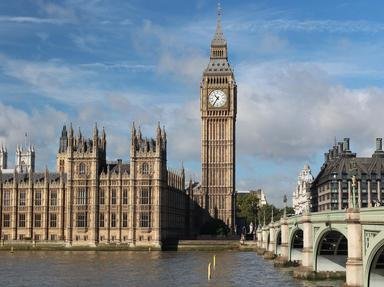Quiz Answer Key and Fun Facts
1. Robert Peel's father was also an MP.
2. What was the wealth of the Peel family based on?
3. Robert Peel was educated at Harrow and the University of Oxford. When he graduated in 1808 what kind of degree did he obtain?
4. In 1809 Robert Peel entered Parliament at the age of 21, as a Tory. What was his constituency?
5. Which of these offices of state did Robert Peel never hold?
6. In c. 1812-17 Peel became very closely identified with one of the following policies. Which was it?
7. Peel made extensive reforms to the criminal justice system in 1822-1830. Which of these was *not* one of his reforms?
8. Robert Peel's name is closely associated with the establishment in 1829 of the Metropolitan Police. When he first proposed a new police force in the early 1820s what was the main objection made in Parliament to his proposal?
9. Peel's main premiership lasted from 1841-46. Which of the following led to a serious and lasting split in the Conservative (Tory) Party?
10. When Sir Robert Peel died in 1850 there was a national outpouring of grief.
Source: Author
bloomsby
This quiz was reviewed by FunTrivia editor
DakotaNorth before going online.
Any errors found in FunTrivia content are routinely corrected through our feedback system.
